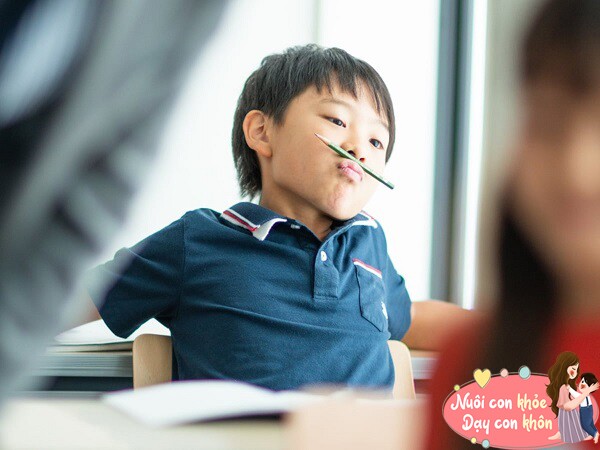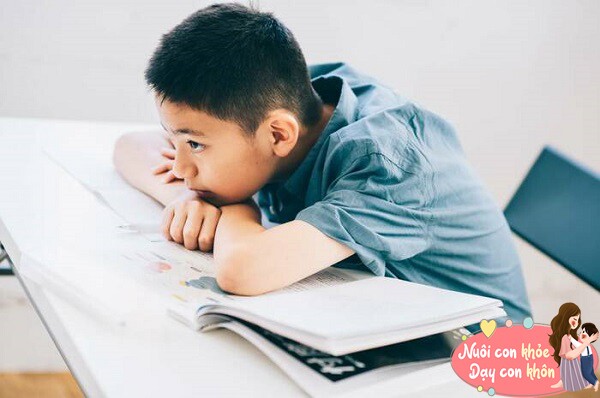However, there are also children who struggle with learning, and this can be attributed to various factors, including education methods and family environment.
According to psychology and education experts, children who are more difficult to teach may reflect negative study habits. If children do not receive adequate attention and encouragement to develop independent thinking, they may easily lack motivation and face challenges with concentration. Specifically, there are three main habits commonly observed in children who struggle with concentration in their studies:

**Memory Retention Issues:**
Some subjects require rote memorization, such as History and Geography, while others like Mathematics, Chemistry, and Physics demand understanding and application of concepts. If children are reluctant to memorize, even with a high IQ, their learning ability will be significantly impacted if they don’t cultivate a habit of memorization. Many children possess excellent analytical and critical thinking skills but struggle with information retention. The key lies in their “laziness.” When children lack motivation or good study habits, they may not reach their full potential.

Memory retention issues can also affect their confidence. When children feel they lack the knowledge to face exams or academic activities, they may experience pressure and discouragement. This low self-esteem creates a vicious cycle, further reducing their engagement in academic pursuits.
To address this, parents and teachers should encourage children to develop memory retention habits through fun and creative learning methods. The use of flashcards, brain games, and group activities can spark their interest in learning. Additionally, implementing memory strategies such as analysis, mind mapping, and information association will enable them to comprehend concepts deeply and improve retention.

**Mental Laziness:**
In reality, the more we use our brains, the better they function. The saying, “Use it or lose it,” reflects an important principle in intellectual development. When children encounter challenging problems or questions they can’t answer, hesitancy or mental laziness can cause them to miss out on learning opportunities. If they don’t make an effort to understand, they are likely to make similar mistakes the next time they encounter those questions.

Mental laziness, especially when coupled with a lack of motivation to review incorrect tests and a reluctance to practice, becomes a significant hurdle in their academic journey. These habits reduce their ability to absorb knowledge, creating a challenging cycle to break.
Therefore, it’s essential to cultivate children’s ability to grasp information, not solely relying on natural intelligence but also emphasizing diligence and patience in revision. High-achieving students often know how to analyze questions and draw inferences from real-life examples, developing their critical thinking and problem-solving skills.

**Lack of Critical Thinking:**
Children who lack critical thinking skills will struggle with knowledge acquisition and cognitive development. When they don’t take the initiative to explore and analyze information, they will merely memorize without truly understanding the essence of the subject matter. This impairs their ability to adapt to new situations.
The learning process demands a flexible and active brain, one that is engaged in thoughtful inquiry and wise time management. Only when children learn to think and analyze can they extract valuable lessons from their experiences.

Lack of diligence implies studying without seriousness and depth, falling short of high-quality thinking, where children actively explore and connect concepts.
High-quality thinking involves more than just memorizing information; it entails applying knowledge in practical situations, analyzing, and solving problems creatively.
Thus, children should be taught to ask questions, seek answers, and think critically. These skills will benefit them not only academically but also in life when facing important decisions and challenges.







































